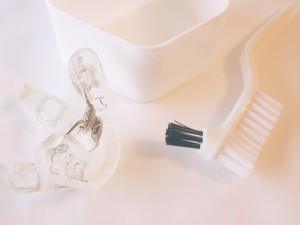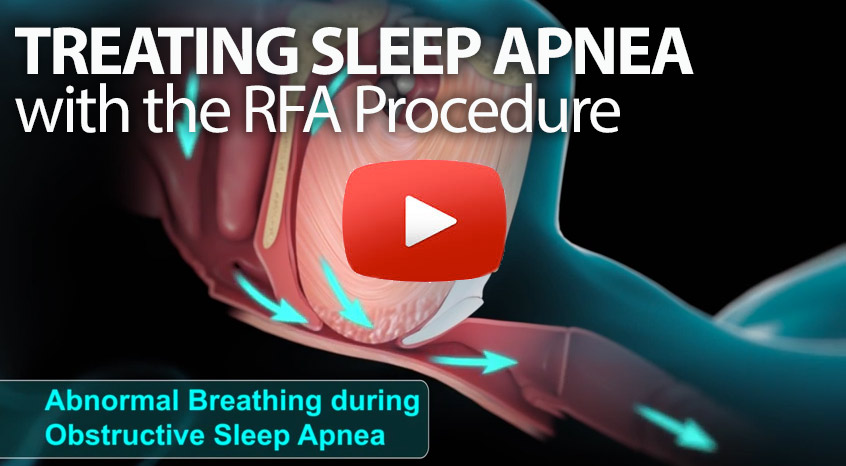If you have sleep apnea, you’re not alone. In fact, according to the American Sleep Apnea Association, 22 million Americans have this sleep disorder. Having sleep apnea not only causes fatigue from failing to get a good night’s sleep, but it can also be life threatening as it involves pauses in breathing during sleep. Although the main treatment for sleep apnea is CPAP (Continuous Positive Airway Pressure) therapy, a CPAP mask can be very uncomfortable, cumbersome, and may not be your best solution.
But thanks to oral appliances, also called dental appliances, some people who used to suffer from sleep apnea are finding relief from their problem, without using CPAP machines. If you have sleep apnea and struggle to get a new night’s sleep, even with CPAP treatments, a variety of alternatives and you can talk to a sleep apnea professional that can help advise you. One of those alternatives for consideration are oral devices.
Benefits of Using Oral Devices for Sleep Apnea
- Less restrictiveness—Oral appliances aren’t as restrictive as wearing a CPAC mask.
- They’re lightweight—Unlike CPAP machines, they small and can even fit inside a bag.
- Portability—They’re much easier to take with you than transporting a heavy CPAP machine. You can even use them when resting on a bus or plane.
- Dual purposed— Some oral appliances can effectively treat snoring, besides sleep apnea.
- Easy to use
- Affordability—They’re considerably cheaper than CPAP equipment.
Types of Oral Appliances and How They Work
There are two primary types of oral appliances used in treating sleep apnea: tongue retaining appliances and MRDs (Mandibular Repositioning Devices).
- Tongue retaining appliances work by clutching the tongue frontward, using a suction bulb. This keeps the back of the device from caving in when you’re asleep, besides prevents air from becoming blocked from your upper airway.
- MRDs are used for holding the jaw in a forward position while sleeping. As a result, the tongue is pulled forward so that it doesn’t collapse and block the upper airway. It also stabilized the jaw so that your mouth doesn’t open when you sleep.
Suitable Candidates
Not everyone is suited for this type of treatment. For example,
- To be a good candidate for using oral appliances, you must have mild or moderate OSA (Obstructive Sleep Apnea). However, these devices aren’t intended as a behavioral measure for people with severe OSA or patients needing to lose weight or change their sleep position.
- Younger and thinner patients tend to have better success using oral appliances than older, overweight people.
Additional Considerations and Warnings
- Younger and thinner patients tend to have better success using oral appliances than older and overweight people.
- As with any type of treatment, sometimes there can be side effects from using MRDs. These may include jaw pain and dry mouth. You may also, initially, have a toothache, but this doesn’t occur often and goes away quickly.
- In most cases, you’ll need to get a prescription for any type of sleep apnea oral devices as they’re not found over-the-counter. This is done by seeing a sleep doctor. These devices typically entail being custom fitted by a dentist or orthodontist. To make sure your oral appliance fits and is effective, you’ll need to be regularly monitored.
- Be sure any doctor or dentist who treats you has experience in sleep apnea therapies.
Next to CPAP therapy, MRDs are one of the more popular obtrusive sleep apnea options but they are not the only one. Radio Frequency Ablation (or RFA) is an in-office treatment option that allows many sleep apnea sufferers to eliminate the need fro CPAP machines and oral devices.
If you or someone you know is in need of a better night’s sleep, contact us for a no obligation consultation. We are the sleep specialists at Chevy Chase ENT located in the Virginia, Maryland, and Washington D.C. metro area dealing with sleep apnea and sleep-related problems. We can help diagnose your condition, recommend whether a sleep study would be beneficial, and offer you a variety of treatment options including CPAP, Radio Frequency Ablation (RFA) and more.

